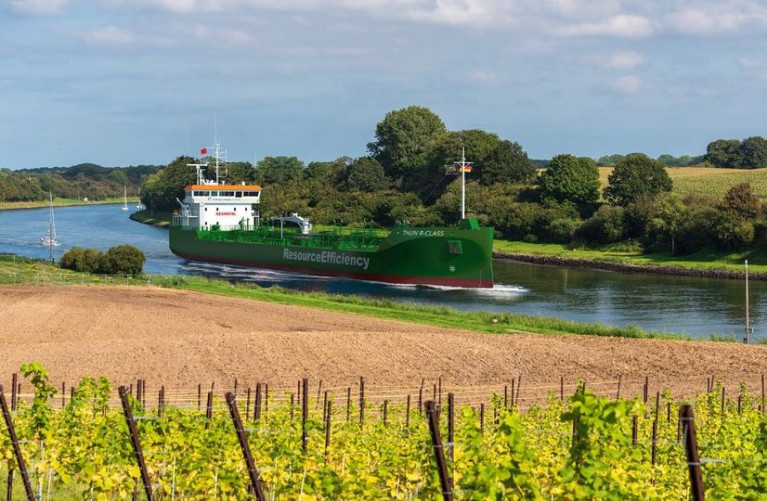Displaying items by tag: Coastal tankers
Frequent Irish ports caller, Thun Tankers whose fleet continues to expand as the Scandinavian shipping company haved place an order for a pair of 7,999 mts dwt tankers.
Thun Tankers is part of the Erik Thun Group, a company owned by the Källsson family since 1938, with the Swedish lake-based group engaged in operations among them between Milford Haven,Wales to Irish Ports.
As for the two ordered R-Class vessels, they are a further development of Thuns’ existing vessels among them the E-class as Afloat previously reported. Focus on resource efficiency, environmental responsibility and logistical reliability has been key in the design process of the R class.
"The scope for the “R-Class” series have been to build the most resource efficient vessels available for the trade, with minimal environmental impact. Thun’s long experience of building high performing quality vessels has been used in the design process. We have been combining this with a number of new features to further improve performance while reducing our climate footprint" said Joakim Lund, CCO at Thun Tankers BV.
The ships, that will be built by Scheepswerf Ferus Smit BV in the Netherlands, will be delivered during first half 2024. Ferus Smit BV has previously built forty ships for Erik Thun.
The main characteristics for the R class vessels are:
• Length overall about 114.95 m
• Breath moulded about 15.87 m
• Max dwt draft 6.9 m
• Deadweight about 7999 ton
• Cargo tank capacity about 9540 m3
• Ice Class 1A (Finnish Swedish)
Upon delivery they will enter into the Gothia Tanker Alliance network and be technically managed by MF Shipping Group.
Adaptive propulsion to minimize energy usage, UPS battery pack, the latest hull design and the newest and most resource efficient machinery are some examples of the vessels new features.





























































